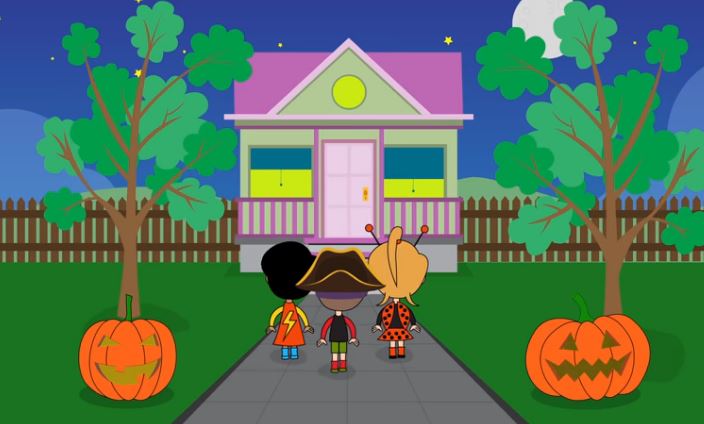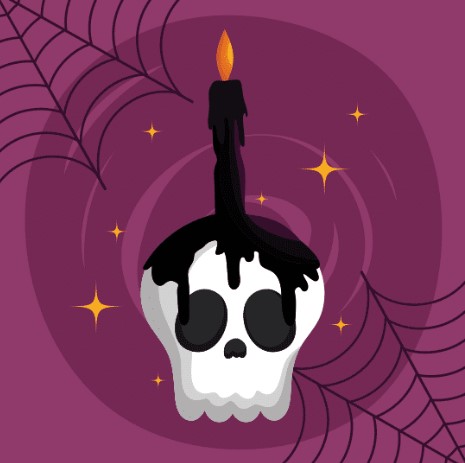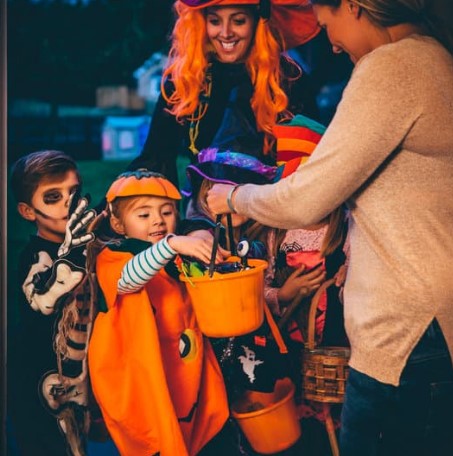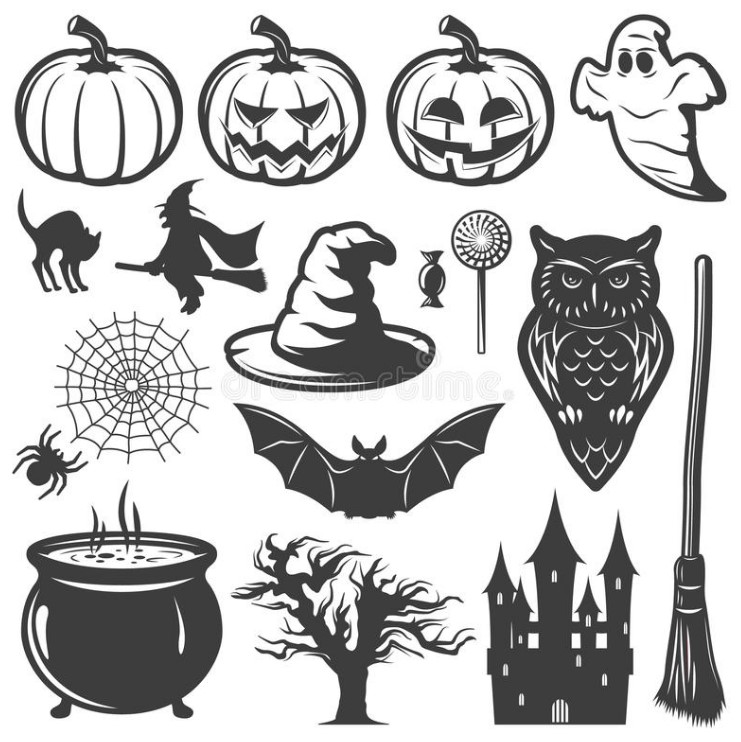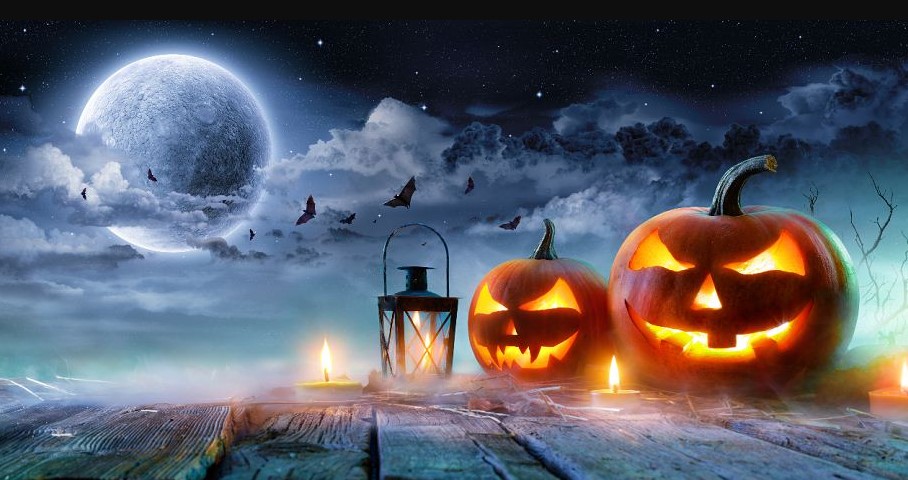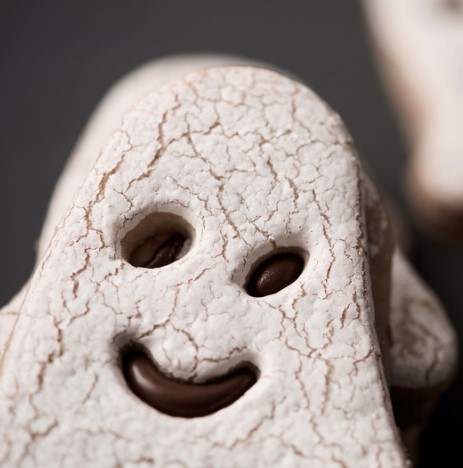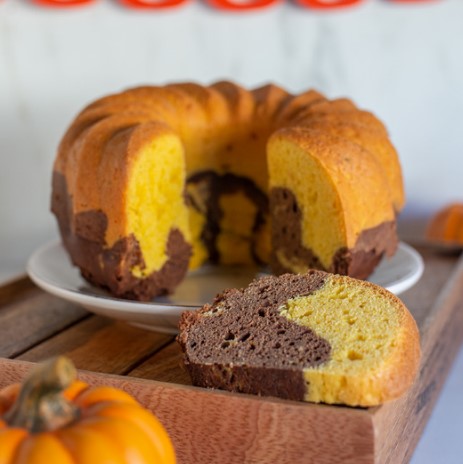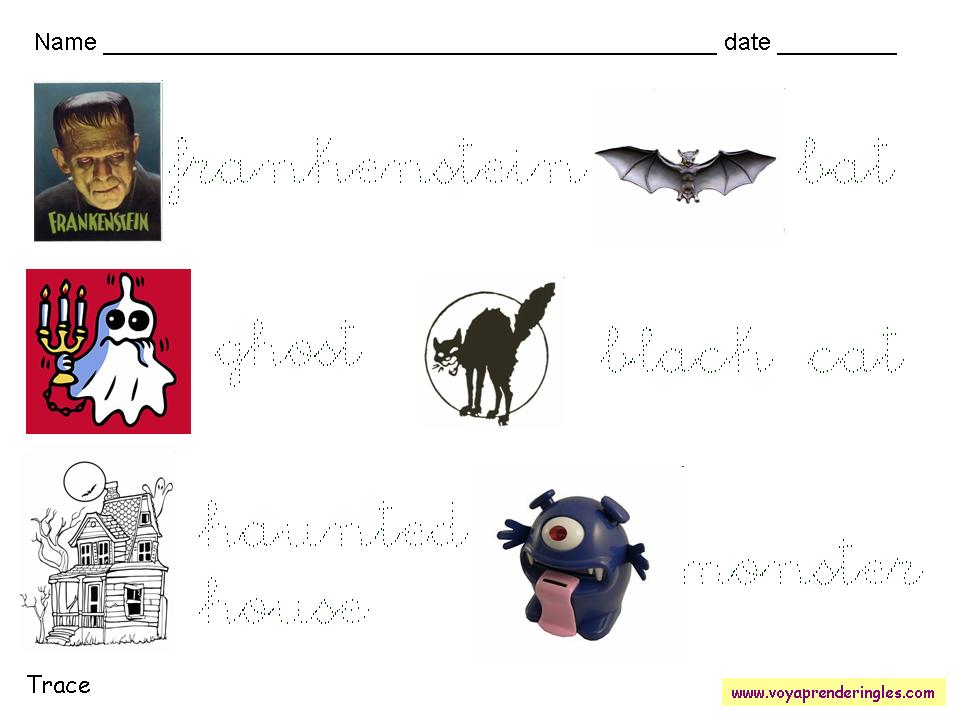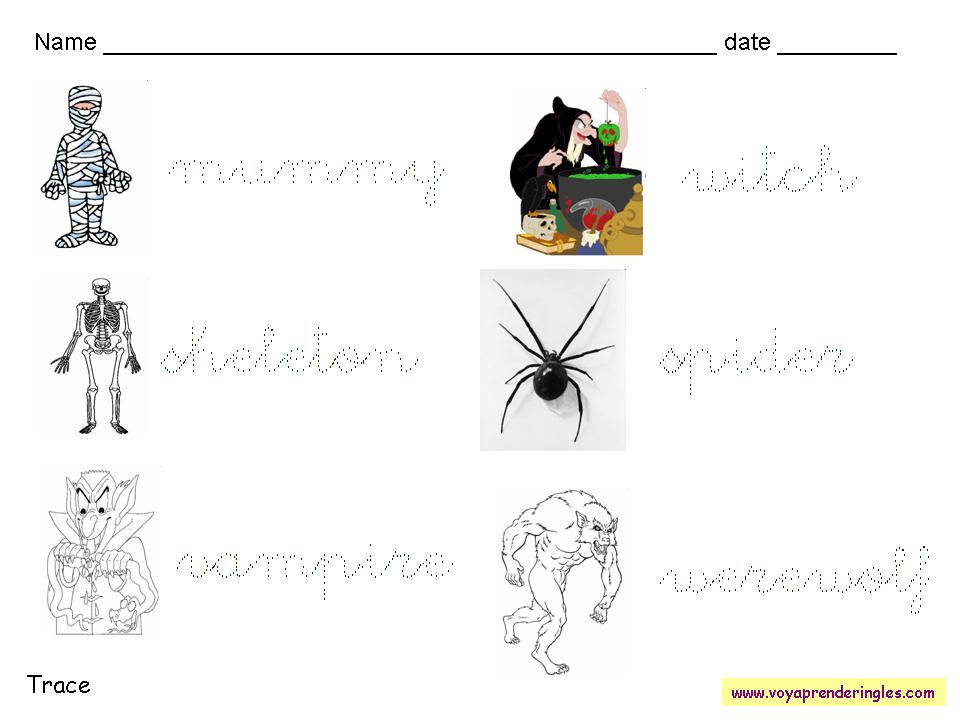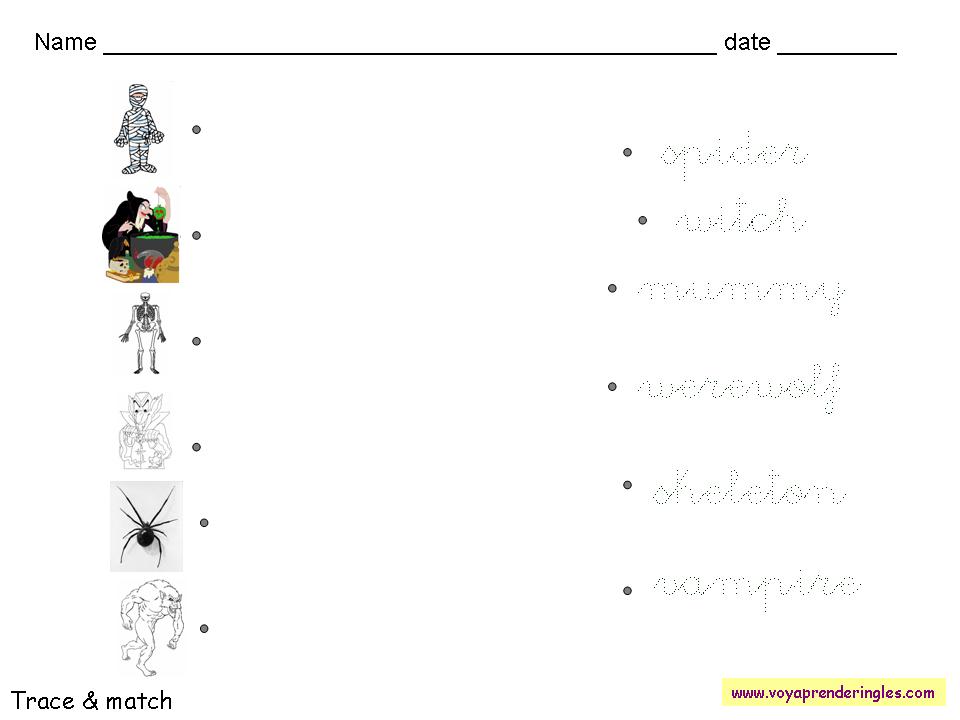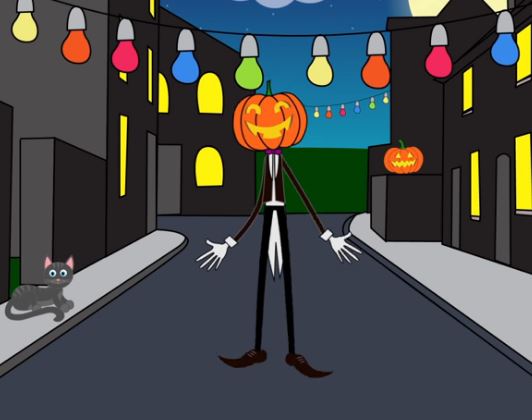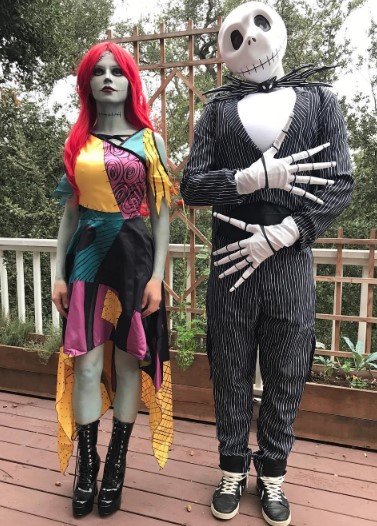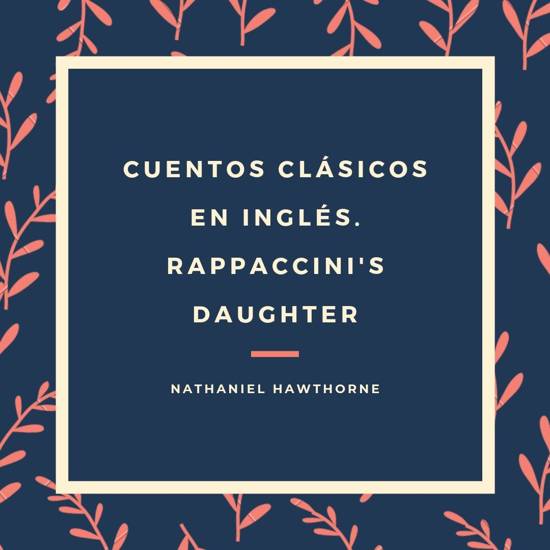
Recursos Educativos en Inglés - Stories in English
Cuentos clásicos en inglés
Rappaccini's Daughter - Nathaniel Hawthorne
We do not remember to have seen any translated specimens of the productions of M. de l'Aubepine -- a fact the less to be wondered at, as his very name is unknown to many of his own countrymen as well as to the student of foreign literature. As a writer, he seems to occupy an unfortunate position between the Transcendentalists (who, under one name or another, have their share in all the current literature of the world) and the great body of pen-and-ink men who address the intellect and sympathies of the multitude. If not too refined, at all events too remote, too shadowy, and unsubstantial in his modes of development to suit the taste of the latter class, and yet too popular to satisfy the spiritual or metaphysical requisitions of the former, he must necessarily find himself without an audience, except here and there an individual or possibly an isolated clique. His writings, to do them justice, are not altogether destitute of fancy and originality; they might have won him greater reputation but for an inveterate love of allegory, which is apt to invest his plots and characters with the aspect of scenery and people in the clouds, and to steal away the human warmth out of his conceptions. His fictions are sometimes historical, sometimes of the present day, and sometimes, so far as can be discovered, have little or no reference either to time or space. In any case, he generally contents himself with a very slight embroidery of outward manners, -- the faintest possible counterfeit of real life, -- and endeavors to create an interest by some less obvious peculiarity of the subject. Occasionally a breath of Nature, a raindrop of pathos and tenderness, or a gleam of humor, will find its way into the midst of his fantastic imagery, and make us feel as if, after all, we were yet within the limits of our native earth. We will only add to this very cursory notice that M. de l'Aubepine's productions, if the reader chance to take them in precisely the proper point of view, may amuse a leisure hour as well as those of a brighter man; if otherwise, they can hardly fail to look excessively like nonsense.
Our author is voluminous; he continues to write and publish with as much praiseworthy and indefatigable prolixity as if his efforts were crowned with the brilliant success that so justly attends those of Eugene Sue. His first appearance was by a collection of stories in a long series of volumes entitled "Contes deux fois racontees." The titles of some of his more recent works (we quote from memory) are as follows: "Le Voyage Celeste a Chemin de Fer," 3 tom., 1838; "Le nouveau Pere Adam et la nouvelle Mere Eve," 2 tom., 1839; "Roderic; ou le Serpent a l'estomac," 2 tom., 1840; "Le Culte du Feu," a folio volume of ponderous research into the religion and ritual of the old Persian Ghebers, published in 1841; "La Soiree du Chateau en Espagne," 1 tom., 8vo, 1842; and "L'Artiste du Beau; ou le Papillon Mecanique," 5 tom., 4to, 1843. Our somewhat wearisome perusal of this startling catalogue of volumes has left behind it a certain personal affection and sympathy, though by no means admiration, for M. de l'Aubepine; and we would fain do the little in our power towards introducing him favorably to the American public. The ensuing tale is a translation of his "Beatrice; ou la Belle Empoisonneuse," recently published in "La Revue Anti-Aristocratique." This journal, edited by the Comte de Bearhaven, has for some years past led the defence of liberal principles and popular rights with a faithfulness and ability worthy of all praise.
A young man, named Giovanni Guasconti, came, very long ago, from the more southern region of Italy, to pursue his studies at the University of Padua. Giovanni, who had but a scanty supply of gold ducats in his pocket, took lodgings in a high and gloomy chamber of an old edifice which looked not unworthy to have been the palace of a Paduan noble, and which, in fact, exhibited over its entrance the armorial bearings of a family long since extinct. The young stranger, who was not unstudied in the great poem of his country, recollected that one of the ancestors of this family, and perhaps an occupant of this very mansion, had been pictured by Dante as a partaker of the immortal agonies of his Inferno. These reminiscences and associations, together with the tendency to heartbreak natural to a young man for the first time out of his native sphere, caused Giovanni to sigh heavily as he looked around the desolate and ill-furnished apartment.
"Holy Virgin, signor!" cried old Dame Lisabetta, who, won by the youth's remarkable beauty of person, was kindly endeavoring to give the chamber a habitable air, "what a sigh was that to come out of a young man's heart! Do you find this old mansion gloomy? For the love of Heaven, then, put your head out of the window, and you will see as bright sunshine as you have left in Naples."
Guasconti mechanically did as the old woman advised, but could not quite agree with her that the Paduan sunshine was as cheerful as that of southern Italy. Such as it was, however, it fell upon a garden beneath the window and expended its fostering influences on a variety of plants, which seemed to have been cultivated with exceeding care.
"Does this garden belong to the house?" asked Giovanni.
"Heaven forbid, signor, unless it were fruitful of better pot herbs than any that grow there now," answered old Lisabetta. "No; that garden is cultivated by the own hands of Signor Giacomo Rappaccini, the famous doctor, who, I warrant him, has been heard of as far as Naples. It is said that he distils these plants into medicines that are as potent as a charm. Oftentimes you may see the signor doctor at work, and perchance the signora, his daughter, too, gathering the strange flowers that grow in the garden."
The old woman had now done what she could for the aspect of the chamber; and, commending the young man to the protection of the saints, took her departure
Giovanni still found no better occupation than to look down into the garden beneath his window. From its appearance, he judged it to be one of those botanic gardens which were of earlier date in Padua than elsewhere in Italy or in the world. Or, not improbably, it might once have been the pleasure-place of an opulent family; for there was the ruin of a marble fountain in the centre, sculptured with rare art, but so wofully shattered that it was impossible to trace the original design from the chaos of remaining fragments. The water, however, continued to gush and sparkle into the sunbeams as cheerfully as ever. A little gurgling sound ascended to the young man's window, and made him feel as if the fountain were an immortal spirit that sung its song unceasingly and without heeding the vicissitudes around it, while one century imbodied it in marble and another scattered the perishable garniture on the soil. All about the pool into which the water subsided grew various plants, that seemed to require a plentiful supply of moisture for the nourishment of gigantic leaves, and in some instances, flowers gorgeously magnificent. There was one shrub in particular, set in a marble vase in the midst of the pool, that bore a profusion of purple blossoms, each of which had the lustre and richness of a gem; and the whole together made a show so resplendent that it seemed enough to illuminate the garden, even had there been no sunshine. Every portion of the soil was peopled with plants and herbs, which, if less beautiful, still bore tokens of assiduous care, as if all had their individual virtues, known to the scientific mind that fostered them. Some were placed in urns, rich with old carving, and others in common garden pots; some crept serpent-like along the ground or climbed on high, using whatever means of ascent was offered them. One plant had wreathed itself round a statue of Vertumnus, which was thus quite veiled and shrouded in a drapery of hanging foliage, so happily arranged that it might have served a sculptor for a study.
While Giovanni stood at the window he heard a rustling behind a screen of leaves, and became aware that a person was at work in the garden. His figure soon emerged into view, and showed itself to be that of no common laborer, but a tall, emaciated, sallow, and sickly-looking man, dressed in a scholar's garb of black. He was beyond the middle term of life, with gray hair, a thin, gray beard, and a face singularly marked with intellect and cultivation, but which could never, even in his more youthful days, have expressed much warmth of heart.
Nothing could exceed the intentness with which this scientific gardener examined every shrub which grew in his path: it seemed as if he was looking into their inmost nature, making observations in regard to their creative essence, and discovering why one leaf grew in this shape and another in that, and wherefore such and such flowers differed among themselves in hue and perfume. Nevertheless, in spite of this deep intelligence on his part, there was no approach to intimacy between himself and these vegetable existences. On the contrary, he avoided their actual touch or the direct inhaling of their odors with a caution that impressed Giovanni most disagreeably; for the man's demeanor was that of one walking among malignant influences, such as savage beasts, or deadly snakes, or evil spirits, which, should he allow them one moment of license, would wreak upon him some terrible fatality. It was strangely frightful to the young man's imagination to see this air of insecurity in a person cultivating a garden, that most simple and innocent of human toils, and which had been alike the joy and labor of the unfallen parents of the race. Was this garden, then, the Eden of the present world? And this man, with such a perception of harm in what his own hands caused to grow, -- was he the Adam?
The distrustful gardener, while plucking away the dead leaves or pruning the too luxuriant growth of the shrubs, defended his hands with a pair of thick gloves. Nor were these his only armor. When, in his walk through the garden, he came to the magnificent plant that hung its purple gems beside the marble fountain, he placed a kind of mask over his mouth and nostrils, as if all this beauty did but conceal a deadlier malice; but, finding his task still too dangerous, he drew back, removed the mask, and called loudly, but in the infirm voice of a person affected with inward disease, "Beatrice! Beatrice!"
"Here am I, my father. What would you?" cried a rich and youthful voice from the window of the opposite house -- a voice as rich as a tropical sunset, and which made Giovanni, though he knew not why, think of deep hues of purple or crimson and of perfumes heavily delectable. "Are you in the garden?"
"Yes, Beatrice," answered the gardener, "and I need your help."
Soon there emerged from under a sculptured portal the figure of a young girl, arrayed with as much richness of taste as the most splendid of the flowers, beautiful as the day, and with a bloom so deep and vivid that one shade more would have been too much. She looked redundant with life, health, and energy; all of which attributes were bound down and compressed, as it were and girdled tensely, in their luxuriance, by her virgin zone. Yet Giovanni's fancy must have grown morbid while he looked down into the garden; for the impression which the fair stranger made upon him was as if here were another flower, the human sister of those vegetable ones, as beautiful as they, more beautiful than the richest of them, but still to be touched only with a glove, nor to be approached without a mask. As Beatrice came down the garden path, it was observable that she handled and inhaled the odor of several of the plants which her father had most sedulously avoided.
"Here, Beatrice," said the latter, "see how many needful offices require to be done to our chief treasure. Yet, shattered as I am, my life might pay the penalty of approaching it so closely as circumstances demand. Henceforth, I fear, this plant must be consigned to your sole charge."
"And gladly will I undertake it," cried again the rich tones of the young lady, as she bent towards the magnificent plant and opened her arms as if to embrace it. "Yes, my sister, my splendour, it shall be Beatrice's task to nurse and serve thee; and thou shalt reward her with thy kisses and perfumed breath, which to her is as the breath of life."
Then, with all the tenderness in her manner that was so strikingly expressed in her words, she busied herself with such attentions as the plant seemed to require; and Giovanni, at his lofty window, rubbed his eyes and almost doubted whether it were a girl tending her favorite flower, or one sister performing the duties of affection to another. The scene soon terminated. Whether Dr. Rappaccini had finished his labors in the garden, or that his watchful eye had caught the stranger's face, he now took his daughter's arm and retired. Night was already closing in; oppressive exhalations seemed to proceed from the plants and steal upward past the open window; and Giovanni, closing the lattice, went to his couch and dreamed of a rich flower and beautiful girl. Flower and maiden were different, and yet the same, and fraught with some strange peril in either shape.
But there is an influence in the light of morning that tends to rectify whatever errors of fancy, or even of judgment, we may have incurred during the sun's decline, or among the shadows of the night, or in the less wholesome glow of moonshine. Giovanni's first movement, on starting from sleep, was to throw open the window and gaze down into the garden which his dreams had made so fertile of mysteries. He was surprised and a little ashamed to find how real and matter-of-fact an affair it proved to be, in the first rays of the sun which gilded the dew-drops that hung upon leaf and blossom, and, while giving a brighter beauty to each rare flower, brought everything within the limits of ordinary experience. The young man rejoiced that, in the heart of the barren city, he had the privilege of overlooking this spot of lovely and luxuriant vegetation. It would serve, he said to himself, as a symbolic language to keep him in communion with Nature. Neither the sickly and thoughtworn Dr. Giacomo Rappaccini, it is true, nor his brilliant daughter, were now visible; so that Giovanni could not determine how much of the singularity which he attributed to both was due to their own qualities and how much to his wonder-working fancy; but he was inclined to take a most rational view of the whole matter.
In the course of the day he paid his respects to Signor Pietro Baglioni, professor of medicine in the university, a physician of eminent repute to whom Giovanni had brought a letter of introduction. The professor was an elderly personage, apparently of genial nature, and habits that might almost be called jovial. He kept the young man to dinner, and made himself very agreeable by the freedom and liveliness of his conversation, especially when warmed by a flask or two of Tuscan wine. Giovanni, conceiving that men of science, inhabitants of the same city, must needs be on familiar terms with one another, took an opportunity to mention the name of Dr. Rappaccini. But the professor did not respond with so much cordiality as he had anticipated.
"Ill would it become a teacher of the divine art of medicine," said Professor Pietro Baglioni, in answer to a question of Giovanni, "to withhold due and well-considered praise of a physician so eminently skilled as Rappaccini; but, on the other hand, I should answer it but scantily to my conscience were I to permit a worthy youth like yourself, Signor Giovanni, the son of an ancient friend, to imbibe erroneous ideas respecting a man who might hereafter chance to hold your life and death in his hands. The truth is, our worshipful Dr. Rappaccini has as much science as any member of the faculty -- with perhaps one single exception -- in Padua, or all Italy; but there are certain grave objections to his professional character."
"And what are they?" asked the young man.
"Has my friend Giovanni any disease of body or heart, that he is so inquisitive about physicians?" said the professor, with a smile. "But as for Rappaccini, it is said of him -- and I, who know the man well, can answer for its truth -- that he cares infinitely more for science than for mankind. His patients are interesting to him only as subjects for some new experiment. He would sacrifice human life, his own among the rest, or whatever else was dearest to him, for the sake of adding so much as a grain of mustard seed to the great heap of his accumulated knowledge."
"Methinks he is an awful man indeed," remarked Guasconti, mentally recalling the cold and purely intellectual aspect of Rappaccini. "And yet, worshipful professor, is it not a noble spirit? Are there many men capable of so spiritual a love of science?"
"God forbid," answered the professor, somewhat testily; "at least, unless they take sounder views of the healing art than those adopted by Rappaccini. It is his theory that all medicinal virtues are comprised within those substances which we term vegetable poisons. These he cultivates with his own hands, and is said even to have produced new varieties of poison, more horribly deleterious than Nature, without the assistance of this learned person, would ever have plagued the world withal. That the signor doctor does less mischief than might be expected with such dangerous substances is undeniable. Now and then, it must be owned, he has effected, or seemed to effect, a marvellous cure; but, to tell you my private mind, Signor Giovanni, he should receive little credit for such instances of success, -- they being probably the work of chance, -- but should be held strictly accountable for his failures, which may justly be considered his own work."
The youth might have taken Baglioni's opinions with many grains of allowance had he known that there was a professional warfare of long continuance between him and Dr. Rappaccini, in which the latter was generally thought to have gained the advantage. If the reader be inclined to judge for himself, we refer him to certain black-letter tracts on both sides, preserved in the medical department of the University of Padua.
"I know not, most learned professor," returned Giovanni, after musing on what had been said of Rappaccini's exclusive zeal for science, --"I know not how dearly this physician may love his art; but surely there is one object more dear to him. He has a daughter."
"Aha!" cried the professor, with a laugh. "So now our friend Giovanni's secret is out. You have heard of this daughter, whom all the young men in Padua are wild about, though not half a dozen have ever had the good hap to see her face. I know little of the Signora Beatrice save that Rappaccini is said to have instructed her deeply in his science, and that, young and beautiful as fame reports her, she is already qualified to fill a professor's chair. Perchance her father destines her for mine! Other absurd rumors there be, not worth talking about or listening to. So now, Signor Giovanni, drink off your glass of lachryma."
Guasconti returned to his lodgings somewhat heated with the wine he had quaffed, and which caused his brain to swim with strange fantasies in reference to Dr. Rappaccini and the beautiful Beatrice. On his way, happening to pass by a florist's, he bought a fresh bouquet of flowers.
Ascending to his chamber, he seated himself near the window, but within the shadow thrown by the depth of the wall, so that he could look down into the garden with little risk of being discovered. All beneath his eye was a solitude. The strange plants were basking in the sunshine, and now and then nodding gently to one another, as if in acknowledgment of sympathy and kindred. In the midst, by the shattered fountain, grew the magnificent shrub, with its purple gems clustering all over it; they glowed in the air, and gleamed back again out of the depths of the pool, which thus seemed to overflow with colored radiance from the rich reflection that was steeped in it. At first, as we have said, the garden was a solitude. Soon, however, -- as Giovanni had half hoped, half feared, would be the case, -- a figure appeared beneath the antique sculptured portal, and came down between the rows of plants, inhaling their various perfumes as if she were one of those beings of old classic fable that lived upon sweet odors. On again beholding Beatrice, the young man was even startled to perceive how much her beauty exceeded his recollection of it; so brilliant, so vivid, was its character, that she glowed amid the sunlight, and, as Giovanni whispered to himself, positively illuminated the more shadowy intervals of the garden path. Her face being now more revealed than on the former occasion, he was struck by its expression of simplicity and sweetness, -- qualities that had not entered into his idea of her character, and which made him ask anew what manner of mortal she might be. Nor did he fail again to observe, or imagine, an analogy between the beautiful girl and the gorgeous shrub that hung its gemlike flowers over the fountain, -- a resemblance which Beatrice seemed to have indulged a fantastic humor in heightening, both by the arrangement of her dress and the selection of its hues.
Approaching the shrub, she threw open her arms, as with a passionate ardor, and drew its branches into an intimate embrace -- so intimate that her features were hidden in its leafy bosom and her glistening ringlets all intermingled with the flowers
"Give me thy breath, my sister," exclaimed Beatrice; "for I am faint with common air. And give me this flower of thine, which I separate with gentlest fingers from the stem and place it close beside my heart."
With these words the beautiful daughter of Rappaccini plucked one of the richest blossoms of the shrub, and was about to fasten it in her bosom. But now, unless Giovanni's draughts of wine had bewildered his senses, a singular incident occurred. A small orange-colored reptile, of the lizard or chameleon species, chanced to be creeping along the path, just at the feet of Beatrice. It appeared to Giovanni, -- but, at the distance from which he gazed, he could scarcely have seen anything so minute, -- it appeared to him, however, that a drop or two of moisture from the broken stem of the flower descended upon the lizard's head. For an instant the reptile contorted itself violently, and then lay motionless in the sunshine. Beatrice observed this remarkable phenomenon and crossed herself, sadly, but without surprise; nor did she therefore hesitate to arrange the fatal flower in her bosom. There it blushed, and almost glimmered with the dazzling effect of a precious stone, adding to her dress and aspect the one appropriate charm which nothing else in the world could have supplied. But Giovanni, out of the shadow of his window, bent forward and shrank back, and murmured and trembled.
"Am I awake? Have I my senses?" said he to himself. "What is this being? Beautiful shall I call her, or inexpressibly terrible?"
Beatrice now strayed carelessly through the garden, approaching closer beneath Giovanni's window, so that he was compelled to thrust his head quite out of its concealment in order to gratify the intense and painful curiosity which she excited. At this moment there came a beautiful insect over the garden wall; it had, perhaps, wandered through the city, and found no flowers or verdure among those antique haunts of men until the heavy perfumes of Dr. Rappaccini's shrubs had lured it from afar. Without alighting on the flowers, this winged brightness seemed to be attracted by Beatrice, and lingered in the air and fluttered about her head. Now, here it could not be but that Giovanni Guasconti's eyes deceived him. Be that as it might, he fancied that, while Beatrice was gazing at the insect with childish delight, it grew faint and fell at her feet; its bright wings shivered; it was dead -- from no cause that he could discern, unless it were the atmosphere of her breath. Again Beatrice crossed herself and sighed heavily as she bent over the dead insect.
An impulsive movement of Giovanni drew her eyes to the window. There she beheld the beautiful head of the young man -- rather a Grecian than an Italian head, with fair, regular features, and a glistening of gold among his ringlets -- gazing down upon her like a being that hovered in mid air. Scarcely knowing what he did, Giovanni threw down the bouquet which he had hitherto held in his hand.
"Signora," said he, "there are pure and healthful flowers. Wear them for the sake of Giovanni Guasconti."
"Thanks, signor," replied Beatrice, with her rich voice, that came forth as it were like a gush of music, and with a mirthful expression half childish and half woman-like. "I accept your gift, and would fain recompense it with this precious purple flower; but if I toss it into the air it will not reach you. So Signor Guasconti must even content himself with my thanks."
She lifted the bouquet from the ground, and then, as if inwardly ashamed at having stepped aside from her maidenly reserve to respond to a stranger's greeting, passed swiftly homeward through the garden. But few as the moments were, it seemed to Giovanni, when she was on the point of vanishing beneath the sculptured portal, that his beautiful bouquet was already beginning to wither in her grasp. It was an idle thought; there could be no possibility of distinguishing a faded flower from a fresh one at so great a distance.
For many days after this incident the young man avoided the window that looked into Dr. Rappaccini's garden, as if something ugly and monstrous would have blasted his eyesight had he been betrayed into a glance. He felt conscious of having put himself, to a certain extent, within the influence of an unintelligible power by the communication which he had opened with Beatrice. The wisest course would have been, if his heart were in any real danger, to quit his lodgings and Padua itself at once; the next wiser, to have accustomed himself, as far as possible, to the familiar and daylight view of Beatrice -- thus bringing her rigidly and systematically within the limits of ordinary experience. Least of all, while avoiding her sight, ought Giovanni to have remained so near this extraordinary being that the proximity and possibility even of intercourse should give a kind of substance and reality to the wild vagaries which his imagination ran riot continually in producing. Guasconti had not a deep heart -- or, at all events, its depths were not sounded now; but he had a quick fancy, and an ardent southern temperament, which rose every instant to a higher fever pitch. Whether or no Beatrice possessed those terrible attributes, that fatal breath, the affinity with those so beautiful and deadly flowers which were indicated by what Giovanni had witnessed, she had at least instilled a fierce and subtle poison into his system. It was not love, although her rich beauty was a madness to him; nor horror, even while he fancied her spirit to be imbued with the same baneful essence that seemed to pervade her physical frame; but a wild offspring of both love and horror that had each parent in it, and burned like one and shivered like the other. Giovanni knew not what to dread; still less did he know what to hope; yet hope and dread kept a continual warfare in his breast, alternately vanquishing one another and starting up afresh to renew the contest. Blessed are all simple emotions, be they dark or bright! It is the lurid intermixture of the two that produces the illuminating blaze of the infernal regions.
Sometimes he endeavored to assuage the fever of his spirit by a rapid walk through the streets of Padua or beyond its gates: his footsteps kept time with the throbbings of his brain, so that the walk was apt to accelerate itself to a race. One day he found himself arrested; his arm was seized by a portly personage, who had turned back on recognizing the young man and expended much breath in overtaking him.
"Signor Giovanni! Stay, my young friend!" cried he. "Have you forgotten me? That might well be the case if I were as much altered as yourself."
It was Baglioni, whom Giovanni had avoided ever since their first meeting, from a doubt that the professor's sagacity would look too deeply into his secrets. Endeavoring to recover himself, he stared forth wildly from his inner world into the outer one and spoke like a man in a dream.
"Yes; I am Giovanni Guasconti. You are Professor Pietro Baglioni. Now let me pass!"
"Not yet, not yet, Signor Giovanni Guasconti," said the professor, smiling, but at the same time scrutinizing the youth with an earnest glance. "What! did I grow up side by side with your father? and shall his son pass me like a stranger in these old streets of Padua? Stand still, Signor Giovanni; for we must have a word or two before we part."
"Speedily, then, most worshipful professor, speedily," said Giovanni, with feverish impatience. "Does not your worship see that I am in haste?"
Now, while he was speaking there came a man in black along the street, stooping and moving feebly like a person in inferior health. His face was all overspread with a most sickly and sallow hue, but yet so pervaded with an expression of piercing and active intellect that an observer might easily have overlooked the merely physical attributes and have seen only this wonderful energy. As he passed, this person exchanged a cold and distant salutation with Baglioni, but fixed his eyes upon Giovanni with an intentness that seemed to bring out whatever was within him worthy of notice. Nevertheless, there was a peculiar quietness in the look, as if taking merely a speculative, not a human interest, in the young man.
"It is Dr. Rappaccini!" whispered the professor when the stranger had passed. "Has he ever seen your face before?"
"Not that I know," answered Giovanni, starting at the name.
"He HAS seen you! he must have seen you!" said Baglioni, hastily. "For some purpose or other, this man of science is making a study of you. I know that look of his! It is the same that coldly illuminates his face as he bends over a bird, a mouse, or a butterfly, which, in pursuance of some experiment, he has killed by the perfume of a flower; a look as deep as Nature itself, but without Nature's warmth of love. Signor Giovanni, I will stake my life upon it, you are the subject of one of Rappaccini's experiments!"
"Will you make a fool of me?" cried Giovanni, passionately. "THAT, signor professor, were an untoward experiment."
"Patience! patience!" replied the imperturbable professor. "I tell thee, my poor Giovanni, that Rappaccini has a scientific interest in thee. Thou hast fallen into fearful hands! And the Signora Beatrice, -- what part does she act in this mystery?"
But Guasconti, finding Baglioni's pertinacity intolerable, here broke away, and was gone before the professor could again seize his arm. He looked after the young man intently and shook his head.
"This must not be," said Baglioni to himself. "The youth is the son of my old friend, and shall not come to any harm from which the arcana of medical science can preserve him. Besides, it is too insufferable an impertinence in Rappaccini, thus to snatch the lad out of my own hands, as I may say, and make use of him for his infernal experiments. This daughter of his! It shall be looked to. Perchance, most learned Rappaccini, I may foil you where you little dream of it!"
Meanwhile Giovanni had pursued a circuitous route, and at length found himself at the door of his lodgings. As he crossed the threshold he was met by old Lisabetta, who smirked and smiled, and was evidently desirous to attract his attention; vainly, however, as the ebullition of his feelings had momentarily subsided into a cold and dull vacuity. He turned his eyes full upon the withered face that was puckering itself into a smile, but seemed to behold it not. The old dame, therefore, laid her grasp upon his cloak.
"Signor! signor!" whispered she, still with a smile over the whole breadth of her visage, so that it looked not unlike a grotesque carving in wood, darkened by centuries. "Listen, signor! There is a private entrance into the garden!"
"What do you say?" exclaimed Giovanni, turning quickly about, as if an inanimate thing should start into feverish life. "A private entrance into Dr. Rappaccini's garden?"
"Hush! hush! not so loud!" whispered Lisabetta, putting her hand over his mouth. "Yes; into the worshipful doctor's garden, where you may see all his fine shrubbery. Many a young man in Padua would give gold to be admitted among those flowers."
Giovanni put a piece of gold into her hand.
"Show me the way," said he.
A surmise, probably excited by his conversation with Baglioni, crossed his mind, that this interposition of old Lisabetta might perchance be connected with the intrigue, whatever were its nature, in which the professor seemed to suppose that Dr. Rappaccini was involving him. But such a suspicion, though it disturbed Giovanni, was inadequate to restrain him. The instant that he was aware of the possibility of approaching Beatrice, it seemed an absolute necessity of his existence to do so. It mattered not whether she were angel or demon; he was irrevocably within her sphere, and must obey the law that whirled him onward, in ever-lessening circles, towards a result which he did not attempt to foreshadow; and yet, strange to say, there came across him a sudden doubt whether this intense interest on his part were not delusory; whether it were really of so deep and positive a nature as to justify him in now thrusting himself into an incalculable position; whether it were not merely the fantasy of a young man's brain, only slightly or not at all connected with his heart.
He paused, hesitated, turned half about, but again went on. His withered guide led him along several obscure passages, and finally undid a door, through which, as it was opened, there came the sight and sound of rustling leaves, with the broken sunshine glimmering among them. Giovanni stepped forth, and, forcing himself through the entanglement of a shrub that wreathed its tendrils over the hidden entrance, stood beneath his own window in the open area of Dr. Rappaccini's garden.
How often is it the case that, when impossibilities have come to pass and dreams have condensed their misty substance into tangible realities, we find ourselves calm, and even coldly self-possessed, amid circumstances which it would have been a delirium of joy or agony to anticipate! Fate delights to thwart us thus. Passion will choose his own time to rush upon the scene, and lingers sluggishly behind when an appropriate adjustment of events would seem to summon his appearance. So was it now with Giovanni. Day after day his pulses had throbbed with feverish blood at the improbable idea of an interview with Beatrice, and of standing with her, face to face, in this very garden, basking in the Oriental sunshine of her beauty, and snatching from her full gaze the mystery which he deemed the riddle of his own existence. But now there was a singular and untimely equanimity within his breast. He threw a glance around the garden to discover if Beatrice or her father were present, and, perceiving that he was alone, began a critical observation of the plants.
The aspect of one and all of them dissatisfied him; their gorgeousness seemed fierce, passionate, and even unnatural. There was hardly an individual shrub which a wanderer, straying by himself through a forest, would not have been startled to find growing wild, as if an unearthly face had glared at him out of the thicket. Several also would have shocked a delicate instinct by an appearance of artificialness indicating that there had been such commixture, and, as it were, adultery, of various vegetable species, that the production was no longer of God's making, but the monstrous offspring of man's depraved fancy, glowing with only an evil mockery of beauty. They were probably the result of experiment, which in one or two cases had succeeded in mingling plants individually lovely into a compound possessing the questionable and ominous character that distinguished the whole growth of the garden. In fine, Giovanni recognized but two or three plants in the collection, and those of a kind that he well knew to be poisonous. While busy with these contemplations he heard the rustling of a silken garment, and, turning, beheld Beatrice emerging from beneath the sculptured portal.
Giovanni had not considered with himself what should be his deportment; whether he should apologize for his intrusion into the garden, or assume that he was there with the privity at least, if not by the desire, of Dr. Rappaccini or his daughter; but Beatrice's manner placed him at his ease, though leaving him still in doubt by what agency he had gained admittance. She came lightly along the path and met him near the broken fountain. There was surprise in her face, but brightened by a simple and kind expression of pleasure.
"You are a connoisseur in flowers, signor," said Beatrice, with a smile, alluding to the bouquet which he had flung her from the window. "It is no marvel, therefore, if the sight of my father's rare collection has tempted you to take a nearer view. If he were here, he could tell you many strange and interesting facts as to the nature and habits of these shrubs; for he has spent a lifetime in such studies, and this garden is his world."
"And yourself, lady," observed Giovanni, "if fame says true, -- you likewise are deeply skilled in the virtues indicated by these rich blossoms and these spicy perfumes. Would you deign to be my instructress, I should prove an apter scholar than if taught by Signor Rappaccini himself."
"Are there such idle rumors?" asked Beatrice, with the music of a pleasant laugh. "Do people say that I am skilled in my father's science of plants? What a jest is there! No; though I have grown up among these flowers, I know no more of them than their hues and perfume; and sometimes methinks I would fain rid myself of even that small knowledge. There are many flowers here, and those not the least brilliant, that shock and offend me when they meet my eye. But pray, signor, do not believe these stories about my science. Believe nothing of me save what you see with your own eyes."
"And must I believe all that I have seen with my own eyes?" asked Giovanni, pointedly, while the recollection of former scenes made him shrink. "No, signora; you demand too little of me. Bid me believe nothing save what comes from your own lips."
It would appear that Beatrice understood him. There came a deep flush to her cheek; but she looked full into Giovanni's eyes, and responded to his gaze of uneasy suspicion with a queenlike haughtiness.
"I do so bid you, signor," she replied. "Forget whatever you may have fancied in regard to me. If true to the outward senses, still it may be false in its essence; but the words of Beatrice Rappaccini's lips are true from the depths of the heart outward. Those you may believe."
A fervor glowed in her whole aspect and beamed upon Giovanni's consciousness like the light of truth itself; but while she spoke there was a fragrance in the atmosphere around her, rich and delightful, though evanescent, yet which the young man, from an indefinable reluctance, scarcely dared to draw into his lungs. It might be the odor of the flowers. Could it be Beatrice's breath which thus embalmed her words with a strange richness, as if by steeping them in her heart? A faintness passed like a shadow over Giovanni and flitted away; he seemed to gaze through the beautiful girl's eyes into her transparent soul, and felt no more doubt or fear.
The tinge of passion that had colored Beatrice's manner vanished; she became gay, and appeared to derive a pure delight from her communion with the youth not unlike what the maiden of a lonely island might have felt conversing with a voyager from the civilized world. Evidently her experience of life had been confined within the limits of that garden. She talked now about matters as simple as the daylight or summer clouds, and now asked questions in reference to the city, or Giovanni's distant home, his friends, his mother, and his sisters -- questions indicating such seclusion, and such lack of familiarity with modes and forms, that Giovanni responded as if to an infant. Her spirit gushed out before him like a fresh rill that was just catching its first glimpse of the sunlight and wondering at the reflections of earth and sky which were flung into its bosom. There came thoughts, too, from a deep source, and fantasies of a gemlike brilliancy, as if diamonds and rubies sparkled upward among the bubbles of the fountain. Ever and anon there gleamed across the young man's mind a sense of wonder that he should be walking side by side with the being who had so wrought upon his imagination, whom he had idealized in such hues of terror, in whom he had positively witnessed such manifestations of dreadful attributes, -- that he should be conversing with Beatrice like a brother, and should find her so human and so maidenlike. But such reflections were only momentary; the effect of her character was too real not to make itself familiar at once.
In this free intercourse they had strayed through the garden, and now, after many turns among its avenues, were come to the shattered fountain, beside which grew the magnificent shrub, with its treasury of glowing blossoms. A fragrance was diffused from it which Giovanni recognized as identical with that which he had attributed to Beatrice's breath, but incomparably more powerful. As her eyes fell upon it, Giovanni beheld her press her hand to her bosom as if her heart were throbbing suddenly and painfully.
"For the first time in my life," murmured she, addressing the shrub, "I had forgotten thee."
"I remember, signora," said Giovanni, "that you once promised to reward me with one of these living gems for the bouquet which I had the happy boldness to fling to your feet. Permit me now to pluck it as a memorial of this interview."
He made a step towards the shrub with extended hand; but Beatrice darted forward, uttering a shriek that went through his heart like a dagger. She caught his hand and drew it back with the whole force of her slender figure. Giovanni felt her touch thrilling through his fibres.
"Touch it not!" exclaimed she, in a voice of agony. "Not for thy life! It is fatal!"
Then, hiding her face, she fled from him and vanished beneath the sculptured portal. As Giovanni followed her with his eyes, he beheld the emaciated figure and pale intelligence of Dr. Rappaccini, who had been watching the scene, he knew not how long, within the shadow of the entrance.
No sooner was Guasconti alone in his chamber than the image of Beatrice came back to his passionate musings, invested with all the witchery that had been gathering around it ever since his first glimpse of her, and now likewise imbued with a tender warmth of girlish womanhood. She was human; her nature was endowed with all gentle and feminine qualities; she was worthiest to be worshipped; she was capable, surely, on her part, of the height and heroism of love. Those tokens which he had hitherto considered as proofs of a frightful peculiarity in her physical and moral system were now either forgotten, or, by the subtle sophistry of passion transmitted into a golden crown of enchantment, rendering Beatrice the more admirable by so much as she was the more unique. Whatever had looked ugly was now beautiful; or, if incapable of such a change, it stole away and hid itself among those shapeless half ideas which throng the dim region beyond the daylight of our perfect consciousness. Thus did he spend the night, nor fell asleep until the dawn had begun to awake the slumbering flowers in Dr. Rappaccini's garden, whither Giovanni's dreams doubtless led him. Up rose the sun in his due season, and, flinging his beams upon the young man's eyelids, awoke him to a sense of pain. When thoroughly aroused, he became sensible of a burning and tingling agony in his hand -- in his right hand -- the very hand which Beatrice had grasped in her own when he was on the point of plucking one of the gemlike flowers. On the back of that hand there was now a purple print like that of four small fingers, and the likeness of a slender thumb upon his wrist.
Oh, how stubbornly does love, -- or even that cunning semblance of love which flourishes in the imagination, but strikes no depth of root into the heart, -- how stubbornly does it hold its faith until the moment comes when it is doomed to vanish into thin mist! Giovanni wrapped a handkerchief about his hand and wondered what evil thing had stung him, and soon forgot his pain in a reverie of Beatrice.
After the first interview, a second was in the inevitable course of what we call fate. A third; a fourth; and a meeting with Beatrice in the garden was no longer an incident in Giovanni's daily life, but the whole space in which he might be said to live; for the anticipation and memory of that ecstatic hour made up the remainder. Nor was it otherwise with the daughter of Rappaccini. She watched for the youth's appearance, and flew to his side with confidence as unreserved as if they had been playmates from early infancy -- as if they were such playmates still. If, by any unwonted chance, he failed to come at the appointed moment, she stood beneath the window and sent up the rich sweetness of her tones to float around him in his chamber and echo and reverberate throughout his heart: "Giovanni! Giovanni! Why tarriest thou? Come down!" And down he hastened into that Eden of poisonous flowers.
But, with all this intimate familiarity, there was still a reserve in Beatrice's demeanor, so rigidly and invariably sustained that the idea of infringing it scarcely occurred to his imagination. By all appreciable signs, they loved; they had looked love with eyes that conveyed the holy secret from the depths of one soul into the depths of the other, as if it were too sacred to be whispered by the way; they had even spoken love in those gushes of passion when their spirits darted forth in articulated breath like tongues of long-hidden flame; and yet there had been no seal of lips, no clasp of hands, nor any slightest caress such as love claims and hallows. He had never touched one of the gleaming ringlets of her hair; her garment -- so marked was the physical barrier between them -- had never been waved against him by a breeze. On the few occasions when Giovanni had seemed tempted to overstep the limit, Beatrice grew so sad, so stern, and withal wore such a look of desolate separation, shuddering at itself, that not a spoken word was requisite to repel him. At such times he was startled at the horrible suspicions that rose, monster-like, out of the caverns of his heart and stared him in the face; his love grew thin and faint as the morning mist, his doubts alone had substance. But, when Beatrice's face brightened again after the momentary shadow, she was transformed at once from the mysterious, questionable being whom he had watched with so much awe and horror; she was now the beautiful and unsophisticated girl whom he felt that his spirit knew with a certainty beyond all other knowledge.
A considerable time had now passed since Giovanni's last meeting with Baglioni. One morning, however, he was disagreeably surprised by a visit from the professor, whom he had scarcely thought of for whole weeks, and would willingly have forgotten still longer. Given up as he had long been to a pervading excitement, he could tolerate no companions except upon condition of their perfect sympathy with his present state of feeling. Such sympathy was not to be expected from Professor Baglioni.
The visitor chatted carelessly for a few moments about the gossip of the city and the university, and then took up another topic.
"I have been reading an old classic author lately," said he, "and met with a story that strangely interested me. Possibly you may remember it. It is of an Indian prince, who sent a beautiful woman as a present to Alexander the Great. She was as lovely as the dawn and gorgeous as the sunset; but what especially distinguished her was a certain rich perfume in her breath -- richer than a garden of Persian roses. Alexander, as was natural to a youthful conqueror, fell in love at first sight with this magnificent stranger; but a certain sage physician, happening to be present, discovered a terrible secret in regard to her."
"And what was that?" asked Giovanni, turning his eyes downward to avoid those of the professor
"That this lovely woman," continued Baglioni, with emphasis, "had been nourished with poisons from her birth upward, until her whole nature was so imbued with them that she herself had become the deadliest poison in existence. Poison was her element of life. With that rich perfume of her breath she blasted the very air. Her love would have been poison -- her embrace death. Is not this a marvellous tale?"
"A childish fable," answered Giovanni, nervously starting from his chair. "I marvel how your worship finds time to read such nonsense among your graver studies."
"By the by," said the professor, looking uneasily about him, "what singular fragrance is this in your apartment? Is it the perfume of your gloves? It is faint, but delicious; and yet, after all, by no means agreeable. Were I to breathe it long, methinks it would make me ill. It is like the breath of a flower; but I see no flowers in the chamber."
"Nor are there any," replied Giovanni, who had turned pale as the professor spoke; "nor, I think, is there any fragrance except in your worship's imagination. Odors, being a sort of element combined of the sensual and the spiritual, are apt to deceive us in this manner. The recollection of a perfume, the bare idea of it, may easily be mistaken for a present reality."
"Ay; but my sober imagination does not often play such tricks," said Baglioni; "and, were I to fancy any kind of odor, it would be that of some vile apothecary drug, wherewith my fingers are likely enough to be imbued. Our worshipful friend Rappaccini, as I have heard, tinctures his medicaments with odors richer than those of Araby. Doubtless, likewise, the fair and learned Signora Beatrice would minister to her patients with draughts as sweet as a maiden's breath; but woe to him that sips them!"
Giovanni's face evinced many contending emotions. The tone in which the professor alluded to the pure and lovely daughter of Rappaccini was a torture to his soul; and yet the intimation of a view of her character opposite to his own, gave instantaneous distinctness to a thousand dim suspicions, which now grinned at him like so many demons. But he strove hard to quell them and to respond to Baglioni with a true lover's perfect faith.
"Signor professor," said he, "you were my father's friend; perchance, too, it is your purpose to act a friendly part towards his son. I would fain feel nothing towards you save respect and deference; but I pray you to observe, signor, that there is one subject on which we must not speak. You know not the Signora Beatrice. You cannot, therefore, estimate the wrong -- the blasphemy, I may even say -- that is offered to her character by a light or injurious word."
"Giovanni! my poor Giovanni!" answered the professor, with a calm expression of pity, "I know this wretched girl far better than yourself. You shall hear the truth in respect to the poisoner Rappaccini and his poisonous daughter; yes, poisonous as she is beautiful. Listen; for, even should you do violence to my gray hairs, it shall not silence me. That old fable of the Indian woman has become a truth by the deep and deadly science of Rappaccini and in the person of the lovely Beatrice."
Giovanni groaned and hid his face
"Her father," continued Baglioni, "was not restrained by natural affection from offering up his child in this horrible manner as the victim of his insane zeal for science; for, let us do him justice, he is as true a man of science as ever distilled his own heart in an alembic. What, then, will be your fate? Beyond a doubt you are selected as the material of some new experiment. Perhaps the result is to be death; perhaps a fate more awful still. Rappaccini, with what he calls the interest of science before his eyes, will hesitate at nothing."
"It is a dream," muttered Giovanni to himself; "surely it is a dream."
"But," resumed the professor, "be of good cheer, son of my friend. It is not yet too late for the rescue. Possibly we may even succeed in bringing back this miserable child within the limits of ordinary nature, from which her father's madness has estranged her. Behold this little silver vase! It was wrought by the hands of the renowned Benvenuto Cellini, and is well worthy to be a love gift to the fairest dame in Italy. But its contents are invaluable. One little sip of this antidote would have rendered the most virulent poisons of the Borgias innocuous. Doubt not that it will be as efficacious against those of Rappaccini. Bestow the vase, and the precious liquid within it, on your Beatrice, and hopefully await the result."
Baglioni laid a small, exquisitely wrought silver vial on the table and withdrew, leaving what he had said to produce its effect upon the young man's mind.
"We will thwart Rappaccini yet," thought he, chuckling to himself, as he descended the stairs; "but, let us confess the truth of him, he is a wonderful man -- a wonderful man indeed; a vile empiric, however, in his practice, and therefore not to be tolerated by those who respect the good old rules of the medical profession."
Throughout Giovanni's whole acquaintance with Beatrice, he had occasionally, as we have said, been haunted by dark surmises as to her character; yet so thoroughly had she made herself felt by him as a simple, natural, most affectionate, and guileless creature, that the image now held up by Professor Baglioni looked as strange and incredible as if it were not in accordance with his own original conception. True, there were ugly recollections connected with his first glimpses of the beautiful girl; he could not quite forget the bouquet that withered in her grasp, and the insect that perished amid the sunny air, by no ostensible agency save the fragrance of her breath. These incidents, however, dissolving in the pure light of her character, had no longer the efficacy of facts, but were acknowledged as mistaken fantasies, by whatever testimony of the senses they might appear to be substantiated. There is something truer and more real than what we can see with the eyes and touch with the finger. On such better evidence had Giovanni founded his confidence in Beatrice, though rather by the necessary force of her high attributes than by any deep and generous faith on his part. But now his spirit was incapable of sustaining itself at the height to which the early enthusiasm of passion had exalted it; he fell down, grovelling among earthly doubts, and defiled therewith the pure whiteness of Beatrice's image. Not that he gave her up; he did but distrust. He resolved to institute some decisive test that should satisfy him, once for all, whether there were those dreadful peculiarities in her physical nature which could not be supposed to exist without some corresponding monstrosity of soul. His eyes, gazing down afar, might have deceived him as to the lizard, the insect, and the flowers; but if he could witness, at the distance of a few paces, the sudden blight of one fresh and healthful flower in Beatrice's hand, there would be room for no further question. With this idea he hastened to the florist's and purchased a bouquet that was still gemmed with the morning dew-drops.
It was now the customary hour of his daily interview with Beatrice. Before descending into the garden, Giovanni failed not to look at his figure in the mirror, -- a vanity to be expected in a beautiful young man, yet, as displaying itself at that troubled and feverish moment, the token of a certain shallowness of feeling and insincerity of character. He did gaze, however, and said to himself that his features had never before possessed so rich a grace, nor his eyes such vivacity, nor his cheeks so warm a hue of superabundant life.
"At least," thought he, "her poison has not yet insinuated itself into my system. I am no flower to perish in her grasp."
With that thought he turned his eyes on the bouquet, which he had never once laid aside from his hand. A thrill of indefinable horror shot through his frame on perceiving that those dewy flowers were already beginning to droop; they wore the aspect of things that had been fresh and lovely yesterday. Giovanni grew white as marble, and stood motionless before the mirror, staring at his own reflection there as at the likeness of something frightful. He remembered Baglioni's remark about the fragrance that seemed to pervade the chamber. It must have been the poison in his breath! Then he shuddered -- shuddered at himself. Recovering from his stupor, he began to watch with curious eye a spider that was busily at work hanging its web from the antique cornice of the apartment, crossing and recrossing the artful system of interwoven lines -- as vigorous and active a spider as ever dangled from an old ceiling. Giovanni bent towards the insect, and emitted a deep, long breath. The spider suddenly ceased its toil; the web vibrated with a tremor originating in the body of the small artisan. Again Giovanni sent forth a breath, deeper, longer, and imbued with a venomous feeling out of his heart: he knew not whether he were wicked, or only desperate. The spider made a convulsive gripe with his limbs and hung dead across the window.
"Accursed! accursed!" muttered Giovanni, addressing himself. "Hast thou grown so poisonous that this deadly insect perishes by thy breath?"
At that moment a rich, sweet voice came floating up from the garden
"Giovanni! Giovanni! It is past the hour! Why tarriest thou? Come down!"
"Yes," muttered Giovanni again. "She is the only being whom my breath may not slay! Would that it might!"
He rushed down, and in an instant was standing before the bright and loving eyes of Beatrice. A moment ago his wrath and despair had been so fierce that he could have desired nothing so much as to wither her by a glance; but with her actual presence there came influences which had too real an existence to be at once shaken off: recollections of the delicate and benign power of her feminine nature, which had so often enveloped him in a religious calm; recollections of many a holy and passionate outgush of her heart, when the pure fountain had been unsealed from its depths and made visible in its transparency to his mental eye; recollections which, had Giovanni known how to estimate them, would have assured him that all this ugly mystery was but an earthly illusion, and that, whatever mist of evil might seem to have gathered over her, the real Beatrice was a heavenly angel. Incapable as he was of such high faith, still her presence had not utterly lost its magic. Giovanni's rage was quelled into an aspect of sullen insensibility. Beatrice, with a quick spiritual sense, immediately felt that there was a gulf of blackness between them which neither he nor she could pass. They walked on together, sad and silent, and came thus to the marble fountain and to its pool of water on the ground, in the midst of which grew the shrub that bore gem-like blossoms. Giovanni was affrighted at the eager enjoyment -- the appetite, as it were -- with which he found himself inhaling the fragrance of the flowers.
"Beatrice," asked he, abruptly, "whence came this shrub?"
"My father created it," answered she, with simplicity.
"Created it! created it!" repeated Giovanni. "What mean you, Beatrice?"
"He is a man fearfully acquainted with the secrets of Nature," replied Beatrice; "and, at the hour when I first drew breath, this plant sprang from the soil, the offspring of his science, of his intellect, while I was but his earthly child. Approach it not!" continued she, observing with terror that Giovanni was drawing nearer to the shrub. "It has qualities that you little dream of. But I, dearest Giovanni, -- I grew up and blossomed with the plant and was nourished with its breath. It was my sister, and I loved it with a human affection; for, alas! -- hast thou not suspected it? -- there was an awful doom."
Here Giovanni frowned so darkly upon her that Beatrice paused and trembled. But her faith in his tenderness reassured her, and made her blush that she had doubted for an instant.
"There was an awful doom," she continued, "the effect of my father's fatal love of science, which estranged me from all society of my kind. Until Heaven sent thee, dearest Giovanni, oh, how lonely was thy poor Beatrice!"
"Was it a hard doom?" asked Giovanni, fixing his eyes upon her.
"Only of late have I known how hard it was," answered she, tenderly. "Oh, yes; but my heart was torpid, and therefore quiet."
Giovanni's rage broke forth from his sullen gloom like a lightning flash out of a dark cloud.
"Accursed one!" cried he, with venomous scorn and anger. "And, finding thy solitude wearisome, thou hast severed me likewise from all the warmth of life and enticed me into thy region of unspeakable horror!"
"Giovanni!" exclaimed Beatrice, turning her large bright eyes upon his face. The force of his words had not found its way into her mind; she was merely thunderstruck.
"Yes, poisonous thing!" repeated Giovanni, beside himself with passion. "Thou hast done it! Thou hast blasted me! Thou hast filled my veins with poison! Thou hast made me as hateful, as ugly, as loathsome and deadly a creature as thyself -- a world's wonder of hideous monstrosity! Now, if our breath be happily as fatal to ourselves as to all others, let us join our lips in one kiss of unutterable hatred, and so die!"
"What has befallen me?" murmured Beatrice, with a low moan out of her heart. "Holy Virgin, pity me, a poor heart-broken child!"
"Thou, -- dost thou pray?" cried Giovanni, still with the same fiendish scorn. "Thy very prayers, as they come from thy lips, taint the atmosphere with death. Yes, yes; let us pray! Let us to church and dip our fingers in the holy water at the portal! They that come after us will perish as by a pestilence! Let us sign crosses in the air! It will be scattering curses abroad in the likeness of holy symbols!"
"Giovanni," said Beatrice, calmly, for her grief was beyond passion, "why dost thou join thyself with me thus in those terrible words? I, it is true, am the horrible thing thou namest me. But thou, -- what hast thou to do, save with one other shudder at my hideous misery to go forth out of the garden and mingle with thy race, and forget there ever crawled on earth such a monster as poor Beatrice?"
"Dost thou pretend ignorance?" asked Giovanni, scowling upon her. "Behold! this power have I gained from the pure daughter of Rappaccini.
There was a swarm of summer insects flitting through the air in search of the food promised by the flower odors of the fatal garden. They circled round Giovanni's head, and were evidently attracted towards him by the same influence which had drawn them for an instant within the sphere of several of the shrubs. He sent forth a breath among them, and smiled bitterly at Beatrice as at least a score of the insects fell dead upon the ground.
"I see it! I see it!" shrieked Beatrice. "It is my father's fatal science! No, no, Giovanni; it was not I! Never! never! I dreamed only to love thee and be with thee a little time, and so to let thee pass away, leaving but thine image in mine heart; for, Giovanni, believe it, though my body be nourished with poison, my spirit is God's creature, and craves love as its daily food. But my father, -- he has united us in this fearful sympathy. Yes; spurn me, tread upon me, kill me! Oh, what is death after such words as thine? But it was not I. Not for a world of bliss would I have done it."
Giovanni's passion had exhausted itself in its outburst from his lips. There now came across him a sense, mournful, and not without tenderness, of the intimate and peculiar relationship between Beatrice and himself. They stood, as it were, in an utter solitude, which would be made none the less solitary by the densest throng of human life. Ought not, then, the desert of humanity around them to press this insulated pair closer together? If they should be cruel to one another, who was there to be kind to them? Besides, thought Giovanni, might there not still be a hope of his returning within the limits of ordinary nature, and leading Beatrice, the redeemed Beatrice, by the hand? O, weak, and selfish, and unworthy spirit, that could dream of an earthly union and earthly happiness as possible, after such deep love had been so bitterly wronged as was Beatrice's love by Giovanni's blighting words! No, no; there could be no such hope. She must pass heavily, with that broken heart, across the borders of Time -- she must bathe her hurts in some fount of paradise, and forget her grief in the light of immortality, and THERE be well.
But Giovanni did not know it.
"Dear Beatrice," said he, approaching her, while she shrank away as always at his approach, but now with a different impulse, "dearest Beatrice, our fate is not yet so desperate. Behold! there is a medicine, potent, as a wise physician has assured me, and almost divine in its efficacy. It is composed of ingredients the most opposite to those by which thy awful father has brought this calamity upon thee and me. It is distilled of blessed herbs. Shall we not quaff it together, and thus be purified from evil?"
"Give it me!" said Beatrice, extending her hand to receive the little silver vial which Giovanni took from his bosom. She added, with a peculiar emphasis, "I will drink; but do thou await the result."
She put Baglioni's antidote to her lips; and, at the same moment, the figure of Rappaccini emerged from the portal and came slowly towards the marble fountain. As he drew near, the pale man of science seemed to gaze with a triumphant expression at the beautiful youth and maiden, as might an artist who should spend his life in achieving a picture or a group of statuary and finally be satisfied with his success. He paused; his bent form grew erect with conscious power; he spread out his hands over them in the attitude of a father imploring a blessing upon his children; but those were the same hands that had thrown poison into the stream of their lives. Giovanni trembled. Beatrice shuddered nervously, and pressed her hand upon her heart.
"My daughter," said Rappaccini, "thou art no longer lonely in the world. Pluck one of those precious gems from thy sister shrub and bid thy bridegroom wear it in his bosom. It will not harm him now. My science and the sympathy between thee and him have so wrought within his system that he now stands apart from common men, as thou dost, daughter of my pride and triumph, from ordinary women. Pass on, then, through the world, most dear to one another and dreadful to all besides!"
"My father," said Beatrice, feebly, -- and still as she spoke she kept her hand upon her heart, --"wherefore didst thou inflict this miserable doom upon thy child?"
"Miserable!" exclaimed Rappaccini. "What mean you, foolish girl? Dost thou deem it misery to be endowed with marvellous gifts against which no power nor strength could avail an enemy -- misery, to be able to quell the mightiest with a breath -- misery, to be as terrible as thou art beautiful? Wouldst thou, then, have preferred the condition of a weak woman, exposed to all evil and capable of none?"
"I would fain have been loved, not feared," murmured Beatrice, sinking down upon the ground. "But now it matters not. I am going, father, where the evil which thou hast striven to mingle with my being will pass away like a dream-like the fragrance of these poisonous flowers, which will no longer taint my breath among the flowers of Eden. Farewell, Giovanni! Thy words of hatred are like lead within my heart; but they, too, will fall away as I ascend. Oh, was there not, from the first, more poison in thy nature than in mine?"
To Beatrice, -- so radically had her earthly part been wrought upon by Rappaccini's skill, -- as poison had been life, so the powerful antidote was death; and thus the poor victim of man's ingenuity and of thwarted nature, and of the fatality that attends all such efforts of perverted wisdom, perished there, at the feet of her father and Giovanni. Just at that moment Professor Pietro Baglioni looked forth from the window, and called loudly, in a tone of triumph mixed with horror, to the thunderstricken man of science,"Rappaccini! Rappaccini! and is THIS the upshot of your experiment!"
🔆 Otros cuentos:
Adblock test (Why?)
